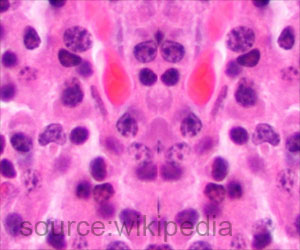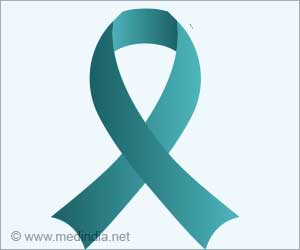Your eating style not only indicates the size of waistline, but also the risk for breast cancer, suggests new research.
Your eating style not only indicates the size of waistline, but also the risk for breast cancer, suggests new research.
Cancer researchers have long studied the role of diet on breast cancer risk, but results to date have been mixed.Now, a new study published in Cancer Prevention Research, a journal of the American Association for Cancer Research, suggests the method by which calories are restricted may be more important for cancer protection than the actual overall degree of calorie restriction.
"Understanding how calorie restriction provides protection against the development of mammary tumors should help us identify pathways that could be targeted for chemoprevention studies," said Margot P. Cleary, Ph.D., professor at the Hormel Institute, University of Minnesota.
"Further identification of serum factors that are involved in tumor development would possibly provide a way to identify at risk individuals and target interventions to these people," the expert added.
Earlier studies have revealed that intermittent calorie restriction provided greater protection from mammary tumor development than did the same overall degree of restriction, which was implemented in a chronic fashion.
The researchers compared changes of a growth factor (IGF-1) in relationship to these two calorie restriction methods - chronic and intermittent - and tumor development beginning in 10-week old female mice at risk to develop mammary tumors. Their hope was to explain why intermittent restriction is more effective.
Advertisements
The researchers were initially surprised by these findings for several reasons. First, the prevailing wisdom is that the degree of protection from calorie restriction is proportional to the degree of mammary tumor prevention. Second, they originally thought that intermittent calorie restriction might enhance tumor growth due to growth factors being secreted in response to re-feeding, Cleary said.
Advertisements
SRM















